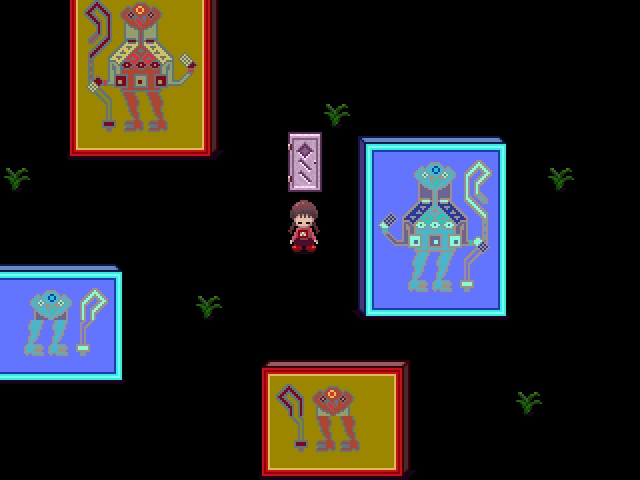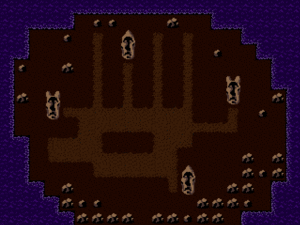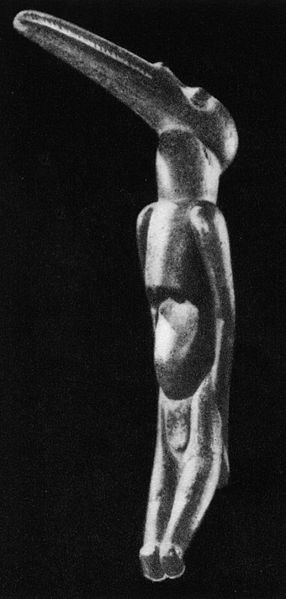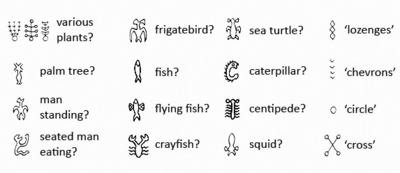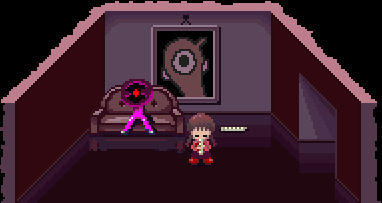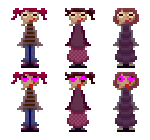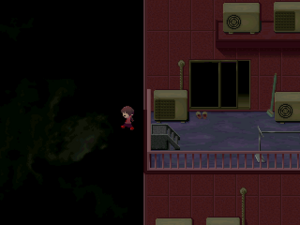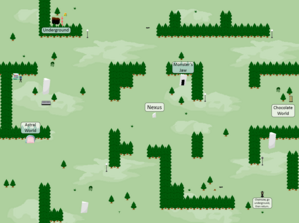Mural World(Petroglyph)
The Birdman cult was suppressed by Christian missionaries in the 1860s.
http://en.wikipedia.org/wiki/Tangata_manu
http://en.wikipedia.org/wiki/Petroglyph
The origin of the cult and the time thereof are uncertain, as it is unknown whether the cult replaced the preceding Moai-based religion or had co-existed with it. Katherine Routledge was, however, able to collect the names of 86 Tangata manu.[1]
Mural World(Birdmen)
Rongorongo_X_Birdman
http://en.wikipedia.org/wiki/Rongorongo_text_X
Rongorongo (pron.: /ˈrɒŋɡoʊˈrɒŋɡoʊ/; Rapa Nui: [ˈɾoŋoˈɾoŋo])
Rongorongo is a system of glyphs discovered in the 19th century on Easter Island that appears to be writing or proto-writing.
The Tangata manu (bird-man), was the winner of a traditional competition on Rapa Nui (Easter Island). The ritual was an annual competition to collect the first Sooty Tern (manu tara) egg of the season from the islet of Motu Nui, swim back to Rapa Nui and climb the sea cliff of Rano Kau to the clifftop village of Orongo.
http://en.wikipedia.org/wiki/Tangata_manu
Dock World(Rongorongo)
A tall, thin, strobing character found in The Docks that appears to be eating something. He gives the Fat effect.
Mural World(Kokopelli)
Kokopelli is a fertility deity, usually depicted as a humpbacked flute player (often with feathers or antenna-like protrusions on his head), who has been venerated by some Native American cultures in the Southwestern United States. Like most fertility deities, Kokopelli presides over both childbirth and agriculture. He is also a trickster god and represents the spirit of music.
http://en.wikipedia.org/wiki/Kokopelli
Toriningen(Not Birdmen)
Harpies remained vivid in the Middle Ages.
In his Inferno, XIII, Dante envisages the tortured wood infested with harpies, where the suicides have their punishment in the seventh ring of Hell:
http://en.wikipedia.org/wiki/Harpy
Here the repellent harpies make their nests,
Who drove the Trojans from the Strophades
With dire announcements of the coming woe.
They have broad wings, a human neck and face,
Clawed feet and swollen, feathered bellies; they caw
Their lamentations in the eerie trees.[6]
William Blake was inspired by Dante's description in his pencil, ink and watercolour "The Wood of the Self-Murderers: The Harpies and the Suicides" (Tate Gallery, London)

